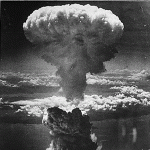On the Dock of the Bay
 Have you thought about how we make decisions? It’s fascinating and frightening. I believe decision making is by far our greatest Achilles Heel. In his book, “Fateful Choices, Ten Decisions that Changed the World”, Ian Kershaw delivers a monumental and insightful lens into decisions by world players during 1940-1941, leading to the catastrophes of World War Two and beyond. It uncovers complexities, blind spots, paradigms, megalomania, group think, and perversities of gaming. The tugs-of- war within closed doors and the powers at play within and outside the decision makers’ line of sight are overwhelming. At the end of the day, people often allow their smallness decide the fate of millions and the subsequent direction of the world.
Have you thought about how we make decisions? It’s fascinating and frightening. I believe decision making is by far our greatest Achilles Heel. In his book, “Fateful Choices, Ten Decisions that Changed the World”, Ian Kershaw delivers a monumental and insightful lens into decisions by world players during 1940-1941, leading to the catastrophes of World War Two and beyond. It uncovers complexities, blind spots, paradigms, megalomania, group think, and perversities of gaming. The tugs-of- war within closed doors and the powers at play within and outside the decision makers’ line of sight are overwhelming. At the end of the day, people often allow their smallness decide the fate of millions and the subsequent direction of the world.
The same can be said of the events that led to our current economic and financial catastrophes and consequences. The same can be said about how we individually decide and the impacts we have on others.
What we read of history often sounds like a linear series of events that had clear cause and effect, heroes and villains, smart and stupid as the drivers. Not so simple. My own attempt at simplicity leaves a lot out, but I conclude that two big factors in decisions are:
- The lens we put on things.
- How we frame the way we will make choices.
The challenge with decisions involving multiple players gets messier because often there are multiple lenses and the frames at play. Lenses are essential for what they bring into focus and what they leave out. Framing is essential because it sets forth the remaining and discarded degrees of freedom. Time and consequences fuel the process and create many of the biases.
This topic is important today for us individually and for our organizations. How we evaluate our environment and the choices it prompts us to make depends on what we see (our lenses). Do we see scarcity and the commensurate hunger and fear that it creates? Do we see abundance and the commensurate opportunity and confidence we can harvest? Do we rely on what time has taught us about good and bad, cause and effect, right and wrong, or ask if the rules have changed and the drivers may be different? Have we led and managed from personal “genius” or by process? I have come to believe that in stable times process trumps personal genius and in changing times, the genius card takes the pot.
The framing of how we can decide is a tough one, but one aspect we can work at improving. Again, it is affected by what we envisage as time available and consequences, but constrained by what our lenses put in front of us. Personal choices carry an infinite number of variables and are compounded by beliefs, values, personal history and levels of personal insanity, ignorance, knowledge and education. Business choices carry the variables that are precipitated from a business economic or public service value system. Both matter.
When I read accounts of events and decisions, they are usually developed because there were consequences that are far reaching. A lens on the decisions made within these accounts invariably carries a post hoc focus on the extent and impact of the consequences, good or bad. That’s the problem with retrospect, not the advantage. So I will oversimplify again.
How often do we manage the present from the future? How often do we stand five, ten or more years from now and look back into today and the sequences of events that came about? It is not a frivolous pretend exercise, but rather a visionary versus incrementalist lens and frame for decision making. Looking at tomorrow with a future retrospective lens may surface that which is unseen from where we stand today. Why? Because the behaviors of other players and the many “what ifs” will carry more weight, essential weight.
The other part may have to do with whether we see scarcity or abundance ahead. That affects how I regard you and you regard me, personally or collectively. We can choose to create the visionary future we see or remain a spectator at the dock waiting for a boat to come for us. Either way, consequences will follow.
“Whenever faced with two choices, always take the third.”

